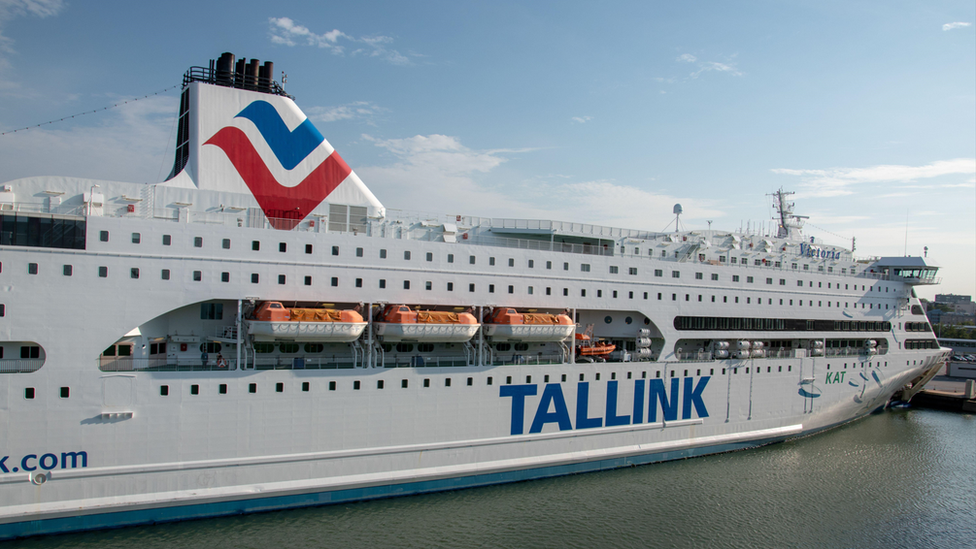Council concerns over Edinburgh refugee ship plan
- Published
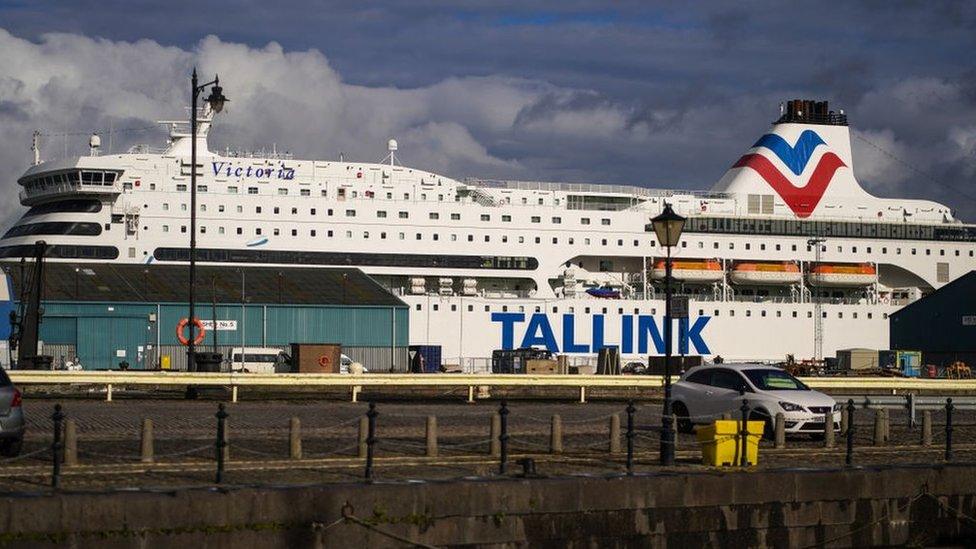
The last of the Ukrainian refugees are due to leave the MS Victoria next month
Edinburgh's council leader says Home Office plans to commission a cruise ship in Leith to house asylum seekers could turn it into a "floating prison".
Cammy Day said the city council had not been consulted on proposals to move asylum seekers onto the MS Victoria.
The ship has previously housed more than 1,000 Ukrainian refugees, with the last due to leave the ship on 11 July.
The Home Office said it had a "statutory obligation to provide accommodation for asylum seekers".
But a spokesman added: "Individuals are not detained and are free to come and go therefore to describe such accommodation as a prison is wrong."
Meanwhile, Forth Ports said it had no plans to house an asylum seeker vessel at the Port of Leith.
Mr Day said the potential consequences for the city and pressures on services were "severe".
He said the council was "extremely surprised" to be contacted by the Home Office about their intentions to commission the ship to house asylum seekers, adding that it was "all the more surprising given their previous advice that it would be impossible for it to remain".
Mr Day told BBC Scotland the plan was to send 700 single men to the capital, which has already has 4,000 people in temporary accommodation.
He added that the council had shown solidarity and support for thousands of Ukrainian refugees, along with those from Syria, Afghanistan and Sudan, and remained "absolutely committed to supporting them in any way we can".
But he said asylum seekers needed recognition, rights and support, not an "unknown future".
The council has now agreed to write to the UK government about its decision.
"We were not consulted on this and urgently require further details from the UK government on their plans," Mr Day said.
"I know the Scottish government and Cosla are in the same position and, having written jointly to the minister of state for immigration, Robert Jenrick MP, we've yet to receive a satisfactory response to our questions and concerns."
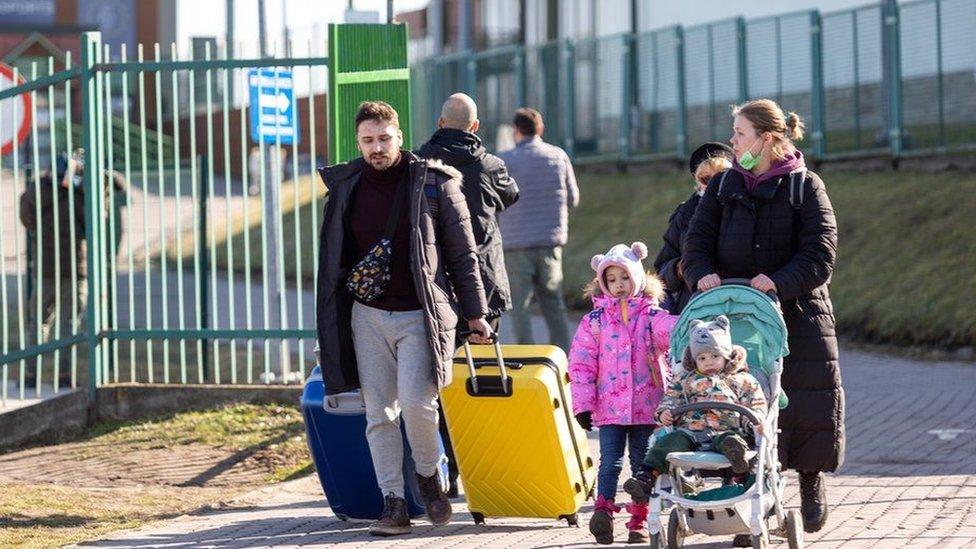
Refugees first started living on the MS Victoria in July 2022
He added: "The potential consequences for the council in terms of the pressures on our services - and the city as a whole - are severe and, barring robust partnership discussions involving NHS, police and other colleagues, we will continue to oppose these plans in the strongest terms."
He said the council believed that Forth Ports was also opposed to the proposals.
"Many of these people have risked their lives to make it to Europe and what they need is recognition and rights, not an unknown future without the support they so desperately need," he added.
"While the MS Victoria has been a place of refuge for many Ukrainian families arriving in Edinburgh, until we have adequate reassurances from the UK government regarding the welfare and ongoing engagement and support, we cannot allow it to become a floating prison for asylum seekers."
Forth Ports said it has had no contact from the UK or Scottish government on the matter.
Chief executive Charles Hammond said: "We would not be able to accommodate this facility at the Port of Leith as we continue to create our bespoke offshore renewables hub.
"We believe that the MS Victoria, which is currently berthed in Leith as a refuge for Ukrainian people, is due to depart in July.
"Forth Ports has no plans to house an asylum seeker vessel at the Port of Leith."
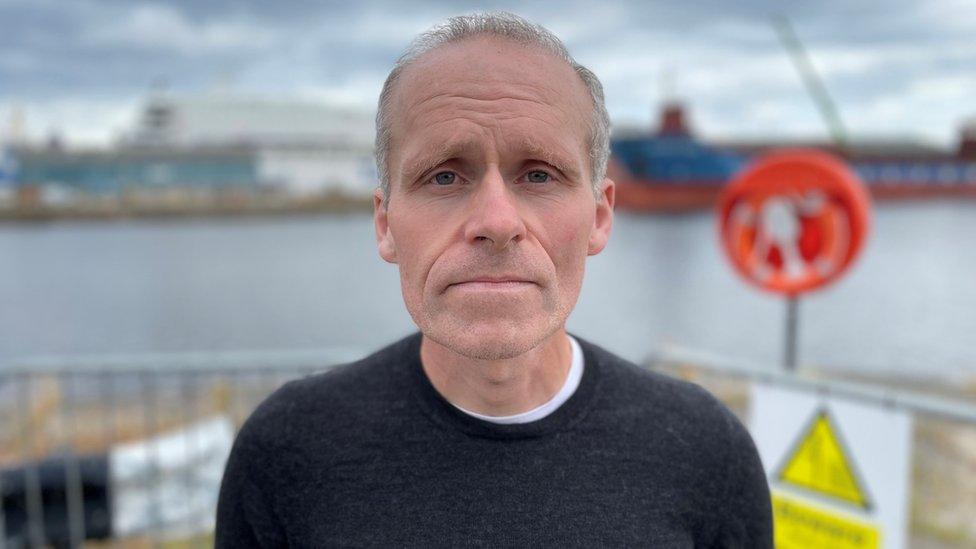
Graham O'Neill, of the Scottish Refugee Council, called on ministers to adopt a "more sensible and humane" policy
Graham O'Neill, of the Scottish Refugee Council, said asylum seekers would face "huge challenges" if they were moved onto the ship.
He told BBC Scotland they would not be allowed to work or access social security and would have to exist on £1.30 a day.
Mr O'Neill said: "We think people will be highly isolated, carrying a lot of trauma and seeing no ability to get out of it.
"It is also important to remember that most people coming to the UK seeking asylum are not only coming from countries like Afghanistan, Sudan and Iran and fleeing very oppressive regimes but they are also stuck in a very long asylum backlog, often for years and years."
He said the figure was currently in the region of 170,000.
Mr O'Neill said: "We anticipate that if people were put onto this ship, like in other ships, barges and ex-hotels across the UK, they are basically being institutionalised."
He also urged UK ministers to implement a "much more sensible and humane" policy.
'Not suitable accommodation'
The Scottish government's migration and refugees minister Emma Roddick said: "We have made clear to the UK government that vessels are not suitable accommodation for people seeking asylum.
"Housing asylum seekers in vessels cannot be compared with their use to temporarily accommodate displaced people from Ukraine because of fundamental differences in terms of their rights and agency."
She said that while people were waiting for a decision on their asylum application there were strict restrictions on the right to work and no access to most mainstream benefits.
She added: "If the UK government chooses to impose the use of the Ms Victoria to accommodate people in Edinburgh it must provide suitable funding for the council and other local devolved services like health and policing, and ensure services are provided so that people can be supported appropriately."
A Home Office spokesperson said: "The Home Office has a statutory obligation to provide accommodation for asylum seekers who would otherwise be destitute while we consider their claim.
"The significant increase in illegal, unnecessary and dangerous Channel crossings has put our asylum system under incredible strain and made it necessary to continue to use hotels to accommodate some asylum seekers.
"We are committed to making every effort to reduce hotel use and continue to engage with local authorities as early as possible whenever sites are used for asylum accommodation."
- Published10 May 2023
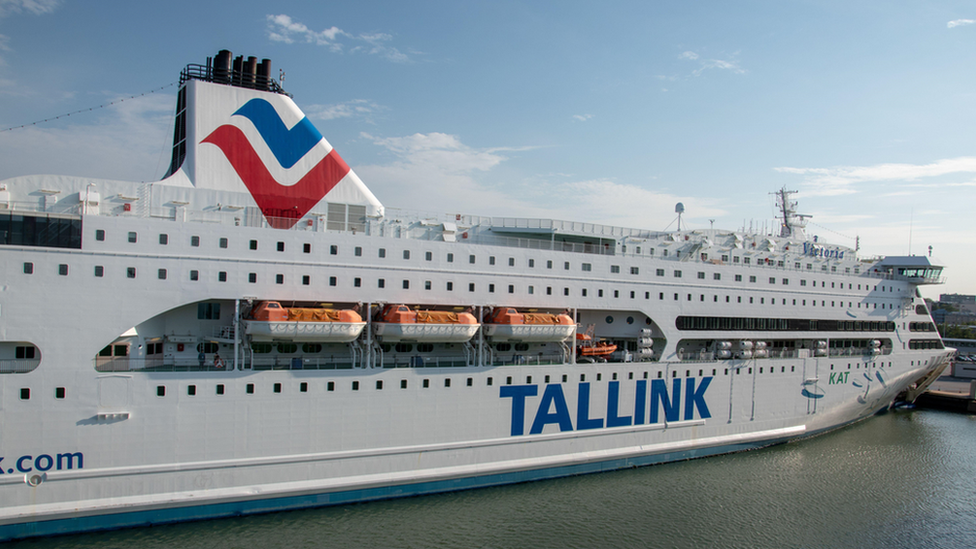
- Published24 March 2023
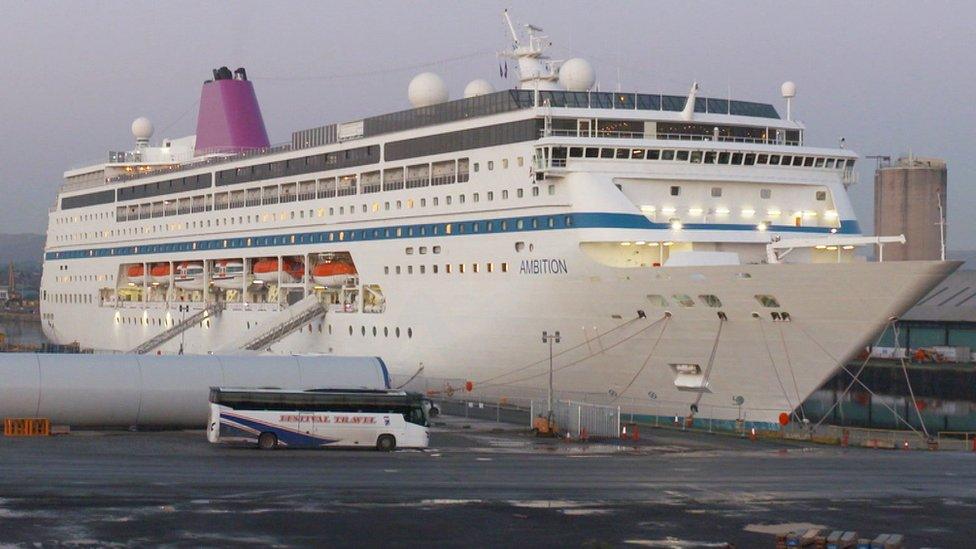
- Published30 July 2022
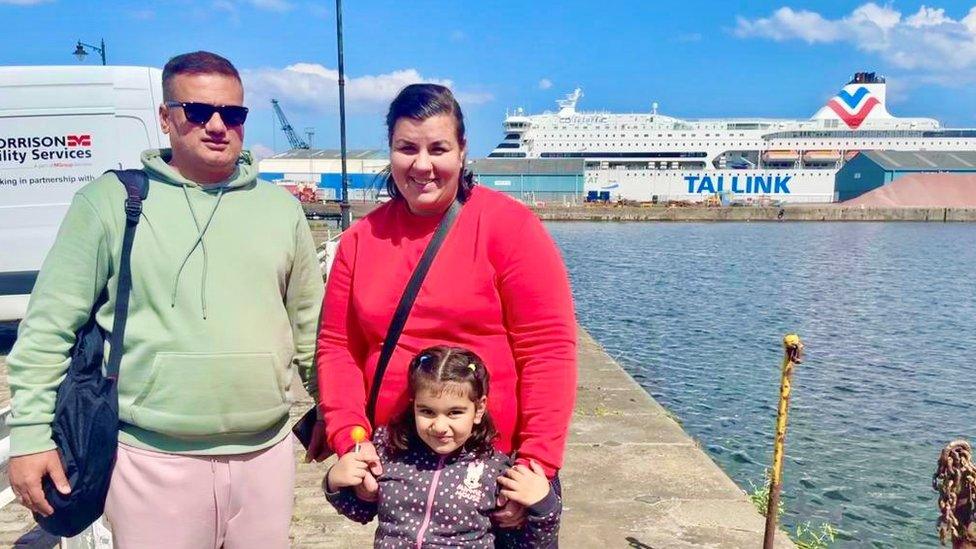
- Published26 July 2022
